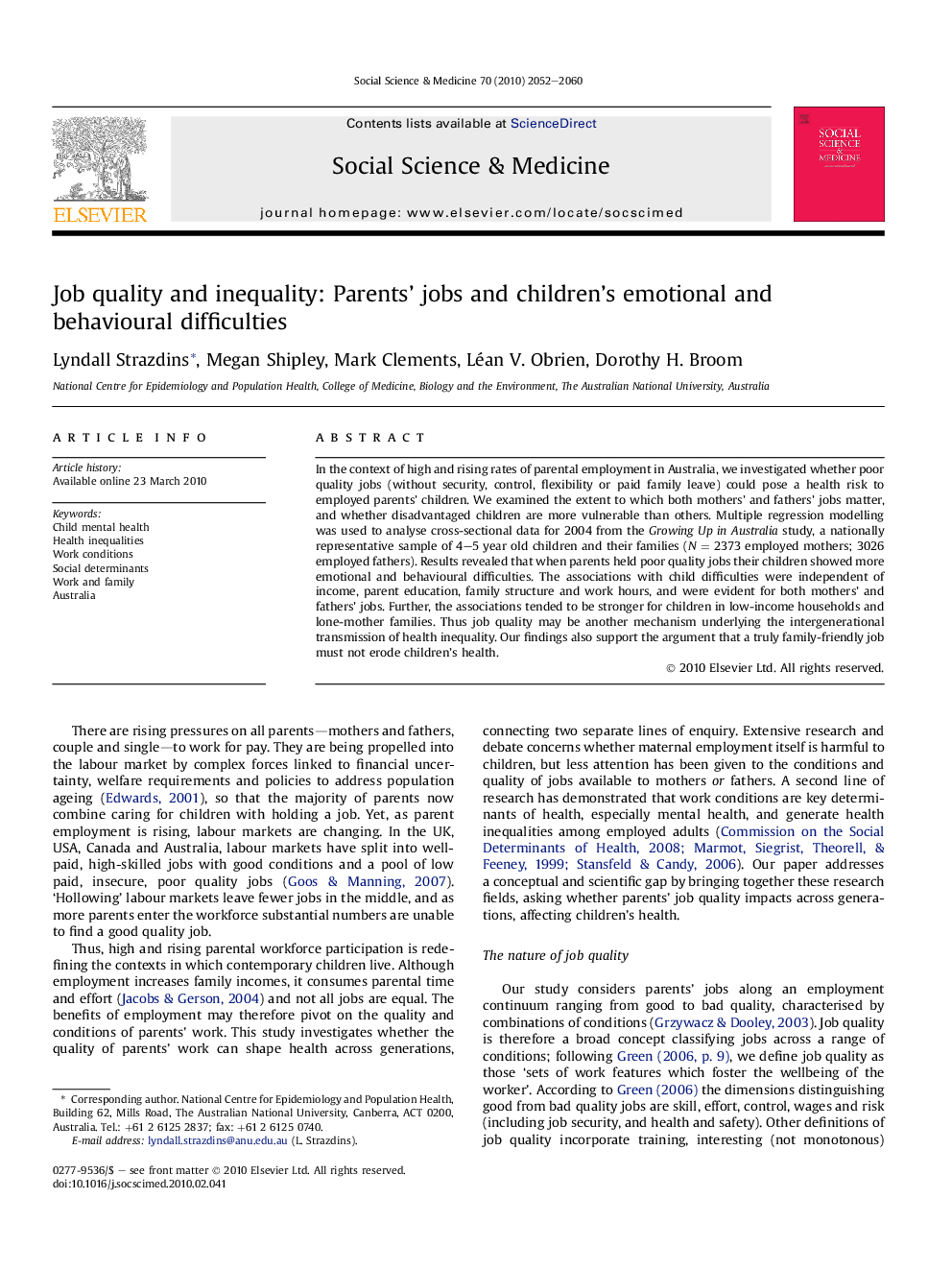| Article ID | Journal | Published Year | Pages | File Type |
|---|---|---|---|---|
| 7338428 | Social Science & Medicine | 2010 | 9 Pages |
Abstract
In the context of high and rising rates of parental employment in Australia, we investigated whether poor quality jobs (without security, control, flexibility or paid family leave) could pose a health risk to employed parents' children. We examined the extent to which both mothers' and fathers' jobs matter, and whether disadvantaged children are more vulnerable than others. Multiple regression modelling was used to analyse cross-sectional data for 2004 from the Growing Up in Australia study, a nationally representative sample of 4-5 year old children and their families (NÂ =Â 2373 employed mothers; 3026 employed fathers). Results revealed that when parents held poor quality jobs their children showed more emotional and behavioural difficulties. The associations with child difficulties were independent of income, parent education, family structure and work hours, and were evident for both mothers' and fathers' jobs. Further, the associations tended to be stronger for children in low-income households and lone-mother families. Thus job quality may be another mechanism underlying the intergenerational transmission of health inequality. Our findings also support the argument that a truly family-friendly job must not erode children's health.
Keywords
Related Topics
Health Sciences
Medicine and Dentistry
Public Health and Health Policy
Authors
Lyndall Strazdins, Megan Shipley, Mark Clements, Léan V. Obrien, Dorothy H. Broom,
